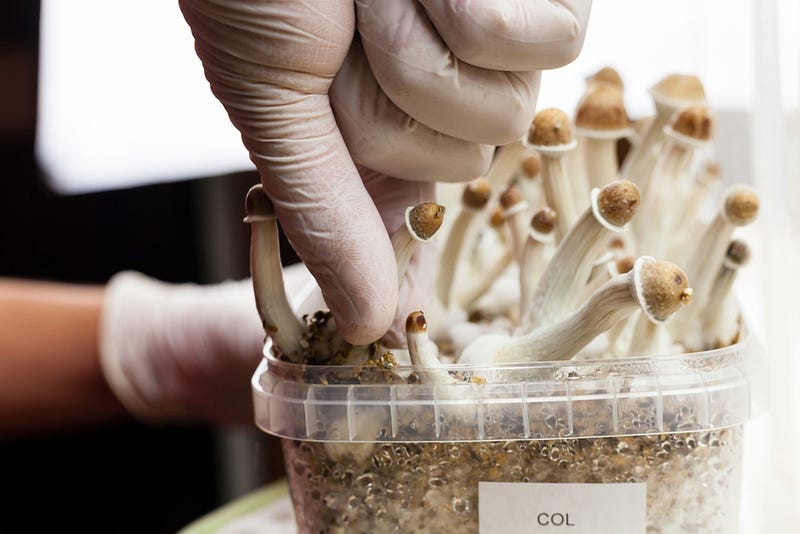Expand Your Mind (And Heal It, Too!): The Use of Psychedelics to Treat Mental Health Issues
By Lily Weber, Biology and English, 2023

When you think of the term “psychedelics,” there are many things that probably come to mind: hippies, music festivals, or even certain types of music. What probably doesn’t come to mind is treatment of mental illness. Yet, despite stigma and bureaucratic barriers, scientific interest in the therapeutic potential for psychedelics is only growing. According to Schenberg et al. published in 2018, the primary interest of current studies is to investigate whether psychedelic drugs may have a place in psychiatric care.
Importantly, as highlighted by Krebs et al. in 2013, many psychedelics, including LSD, psilocybin, and mescaline, are not associated with risk of brain damage or addiction. The study also concluded that psychedelic use by its participants was not associated with worsened mental health outcomes and was even seen to be correlated with decreased mental health issues.
Psychedelic use by [one study’s] participants was not associated with worsened mental health outcomes and was even seen to be correlated with decreased mental health issues.
One doesn’t have to look very far to find a plethora of studies providing scientific backing for the use of psychedelics to treat mental health issues. One group of researchers found that psilocybin reduced depressive symptoms, anxiety, and anhedonia in patients even months following the study. Another group conducted a clinical trial using ketamine to treat chronic PTSD; participants experienced a rapid and pronounced reduction in their symptoms. A third group conducted a meta-analysis on clinical trials using LSD to treat alcoholism and determined LSD had a significantly positive impact on alcohol misuse.
So how are these “illicit” and taboo drugs beneficial to so many? There are many theories, though the one most commonly cited relates to the spiritual or even religious experiences offered by psychedelics. These experiences may help foster a feeling of connectedness with life and greater mindfulness overall. One clinical psychologist, Dr. Rosalind Watts, says psychedelics may have the capability to confront the root causes of mental health issues as opposed to many traditional medications, which often only masks symptoms.
Regardless of how exactly they function to treat mental health, it’s clear that psychedelics warrant further research and consideration. Fortunately, many are working to help make this a reality. Denver recently became the first city to decriminalize hallucinogenic mushrooms. This does seem to represent the beginnings of public receptiveness to exploring these drugs in greater depth as more than just relics from the 60s.
DOI: 10.3389/fphar.2018.00733
DOI: 10.1371/journal.pone.0063972
DOI: 10.1016/S2215–0366(16)30065–7
DOI: 10.1001/jamapsychiatry.2014.62
DOI: 10.1177/0269881112439253
